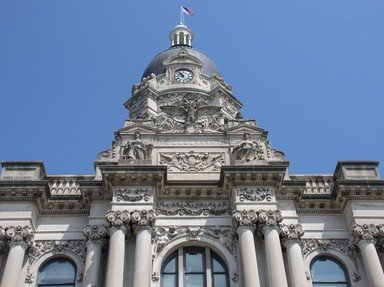Quiz Answer Key and Fun Facts
1. According to the United States Constitution, copyright law is intended to:
2. Which of the following is covered by copyright?
3. In what year was the Digital Millennium Copyright Act (DMCA) passed?
4. What special steps does a creator have to take, after the work has been "fixed in a tangible medium," in order to enjoy the full term of copyright protection?
5. In a university library, where is one most likely to come across copyright issues?
6. Scenario: A university library provides unsupervised photocopy machines, where users can make their own copies. The librarians do not even know what they are copying. The library does have signs posted informing users that making copies may be subject to copyright law. Is the library liable for any infringement committed on their machines?
7. On what principle/doctrine are most library reproduction services (reserve, e-reserve, copy services, document delivery, etc.) based?
8. Which of the following pieces of legislation most affected distance-educators?
9. Which of the following court cases most affects the issue of course packs that include copyrighted material?
10. On what doctrine is the lending of materials through Interlibrary Loan based?
Source: Author
nicklocher
This quiz was reviewed by FunTrivia editor
bloomsby before going online.
Any errors found in FunTrivia content are routinely corrected through our feedback system.
